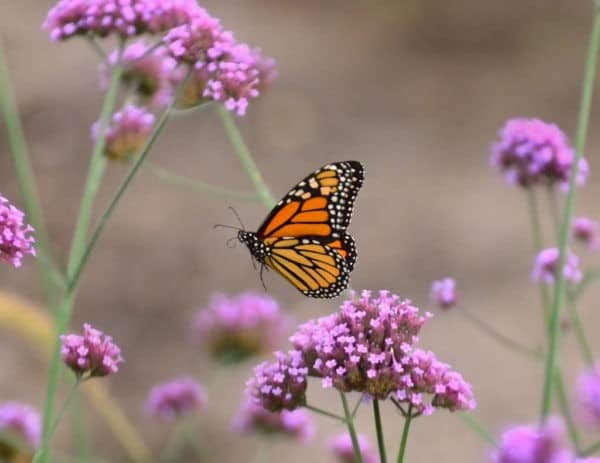
 Richmond Hill, Ontario, is hoping to contribute to saving the monarch butterfly by signing onto the Mayors’ Monarch Pledge, a commitment established by the U.S.-based National Wildlife Federation to restore habitat locations within the community for the endangered species.
Richmond Hill, Ontario, is hoping to contribute to saving the monarch butterfly by signing onto the Mayors’ Monarch Pledge, a commitment established by the U.S.-based National Wildlife Federation to restore habitat locations within the community for the endangered species.
The initiative was forwarded by City Councillor David West who has an on-going family connection to raising monarchs. “When I was a child, my father, brother and I raised and released thousands of Monarch butterflies each summer … and later in life my son and I did the same thing,” said Councillor West in a statement to council last week.
The pledge involves committing to improve local habitats for monarchs, first and foremost by planting more milkweed plants -the one and only locale where monarchs lay their eggs and their primary food source at the larval or caterpillar stage. Participating communities are also asked to plant more native trees, shrubs and nectar plants and to convert vacant lots and public spaces into butterfly friendly habitats.
Earlier this year, Richmond Hill’s neighbours to the east in Markham, Ontario, declared itself Canada’s first “monarch friendly city” by setting up municipal policies for restoring monarch habitats and making milkweed seeds available for residents through the city’s seed library.
“Three quarters of the food we eat depends on pollinators like monarch butterflies,” said Mayor Frank Scarpitti. “Markham has an important role to play in educating the public and supporting monarch habitats in our city parks, community gardens, natural spaces, municipal facilities and public lands.”
The David Suzuki Foundation has been running a similar campaign to encourage Canadian citizens to plant milkweed on their properties. According to Suzuki, the Foundation’s #gotmilkweed campaign which began in Toronto in 2013 has so far led to over 10,000 milkweed plantings in Toronto and collected over 11,000 pledges from people across the country to participate in the program.
“Although milkweed is spreading, again, and monarch numbers have bounced back from historic lows, the population remains more than 80 per cent lower than 20 years ago,” says Suzuki. “In Canada, while the federal government remains quiet, a handful of researchers, municipalities and thousands of concerned individuals are leading the charge.”
The monarch butterfly has had a 90 per cent drop in population east of the Rocky Mountains since 1985, with estimates showing a loss of close to a billion butterflies since 1990. Much of the decline has been attributed to loss of breeding habitat as milkweed plants have come under increasing control by herbicides.
Along with promoting habitat restoration, many concerned citizens have also taken to purchasing monarch eggs reared on butterfly farms, a practice that has drawn harsh criticism from some in the scientific community. Many biologists and butterfly experts have deep reservations about releasing mass-reared monarchs from butterfly farms into the wild, arguing that unlike habitat restoration strategies, these programs are just as likely to do harm to monarch populations than good.
One such group of experts released a joint statement last year calling for a restriction on the purchasing of mass-reared butterflies, arguing that the practice promotes population crowding and disease spread.
“While raising and releasing small numbers of monarchs can offer important scientific and educational opportunities and foster a connection to nature, we believe that releasing commercially produced and continuously mass-reared individuals is unlikely to benefit monarchs, and could actually hurt them,” says the group, whose members come from various colleges and institutions across the United States.
Comment
Leave a Reply
You must be logged in to post a comment.



 Share
Share Tweet
Tweet Share
Share




You can plant milkweed and purchase eggs, but when your butterfly comes out of the cocoon and it has to cross the road in front of your mega house & all the other mega clone properties built next to the highway on granddads farmland and your neighbors new Nissan Rouge runs it over as it attempts to go from point A to point B. I’m amazed that nature can even survive in this god awful rat race we’ve managed to create. Wait until big Tony’s Properties LTD get their greedy mafia mitts on those Mexican Monarch habitats? It will be pool tables & game rooms for all and butterflies in frames on Big Tony’s Walls.
I want to know how to raise thousands of Monarchs too!!!